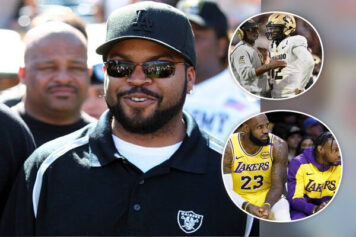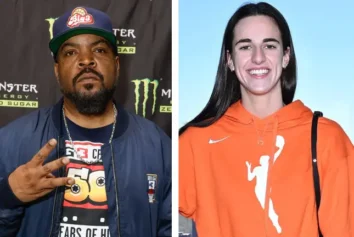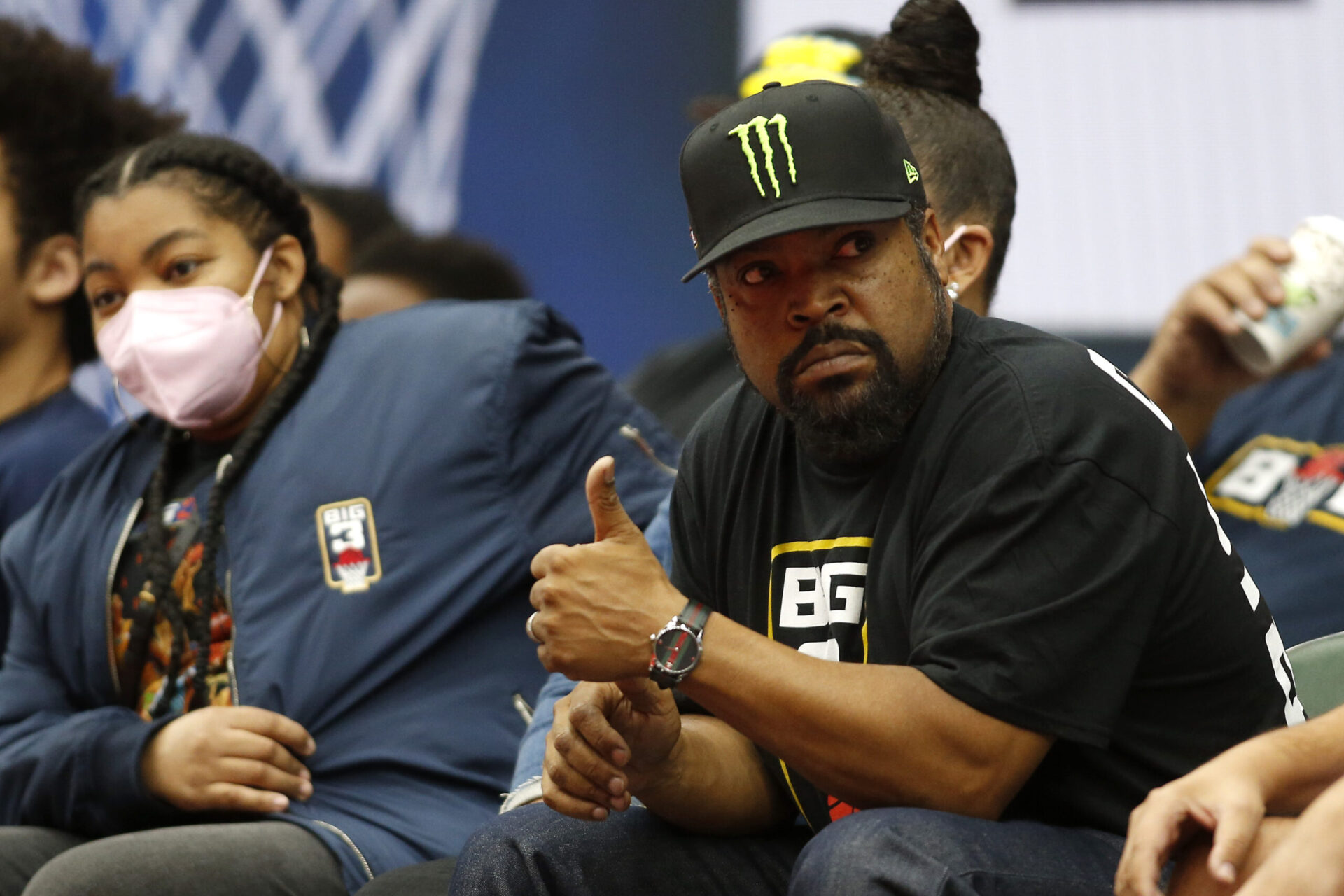From vilified gangsta rapper to media mogul, Ice Cube has had an eventful 50 years on Earth.
It’s hard for some of us to believe, but O’Shea Jackson Sr aka Ice Cube is turning 50 years old this weekend.
The founding member of N.W.A., who was also the very first of the group to go solo, is now a multi-millionaire with multiple entertainment holdings, including the wildly successful Big3 basketball league consisting of retired NBA players.
As time keeps on slipping into the future, a man who was once too gangster is now considered a prominent businessman and driver of the culture. But it wasn’t that long ago that he was considered detrimental.
Cube, at first with his former groupmates and later on his own, was once labeled as everything wrong with black culture in general and rap music in particular.
Though he would forever defend the subject matter, viewpoint and validity of his material, there are still some who would readily cast aspersions upon the manner in which Ice Cube made himself into an American mogul after having been birthed into poverty.
But Cube remains unapologetic about his start and growth.
Indeed, it’s easy to look back upon one’s accomplishments to recall the proper steps of transitioning from one social stratum to the next, but those steps are even more difficult to discern during the building process.
From a high school typing class to a nascent rap group with a three letter acronym that followed the format of many other music groups that came out in the late 80s and early 90s.
Around the same time, fellow West Coast rapper, Ice T, was going through the motions with accusations of misogyny and apathy toward black women. In addition, he was going head to head with the establishment due to the song “Cop Killer” from his metal band Body Count.
For his part, Ice Cube had never waivered that his music is theatrical in nature amid the criticism of his work.
“I think rap music is brought up, gangster rap in particular, as well as video games, every other thing they try to hang the ills of society on as a scapegoat.”
Indeed, with every generation of black music, there will ultimately arise an individual from within the community who would speak out against it. Meanwhile, no one ever gives a sincere effort to extinguishing the circumstances that make the ghetto war stories of Cube and the like so visceral.
Ice Cube was once considered one of hip-hop’s wild boys. A man that only Louis Farrakhan could talk sense into and that establishment blacks disdained. Yet it’s disingenuous to recall the rhymes that denigrate women or allegedly celebrate black-on-black crime while not mentioning themes of pro-blackness and so-called “wokeness” that also permeated most of his works.
It is that realization that leads one to believe much of the criticism had very little to do with protecting children from Cube’s lyrics and everything to do with power and who gets to govern it and wield power.
Early on, Eazy E had power over Cube’s career, but Cube put that to an end when he left Ruthless Records. Next came his battle with Dr. Dre and then so-called East Coast – West Coast beef, an ugly time in hip hop history.
As rap music continued to evolve, Cube’s trajectory towards stardom rocketed upward when he starred in John Singleton’s Academy Award-nominated offering Boyz N the Hood.
The transition was noticeable for fans and critics alike, considering that much of Cube’s early solo work was anti-establishment, anti-mainstream and certainly anti-Hollywood.
But, perhaps seeing television and film was the next logical transition for hip-hop culture, Cube dove head first following his first film.
From Trespass and CB4, through Friday, Higher Learning and Barbershop, Hollywood provided a sturdy bridge over which Cube would transition from music into the mainstream, and from the mainstream accolades would come that lead to true moguldom.
It’s hard to believe that Cube, who once rhymed on Public Enemy’s Burn Hollywood Burn: “Let’s check out a flick that exploits the color/Roamin’ thru Hollywood late at night/Red and blue lights what a common sight/Pulled to the curb gettin’ played like a sucker” has a film catalog that has grossed over $1.5 billion.
It’s crazy how an entire generation of people know him more for his films than for the 10 albums he’s put out over the years. But he wasn’t done, basketball was calling and he answered in a big way.
After getting its inaugural start on FX, Cube’s Big3 league is now on CBS, and O’Shea’s integration into the mainstream entertainment apparatus has come full circle.
From once being deemed a pariah to becoming one of the most influential Black faces in the history of Black entertainment, Ice Cube’s path to moguldom is a story of determination, self-mastery and ownership.
Happy 50th Birthday Ice Cube, you’re an inspiration and hip-hop’s overachieving big brother. Yay Yay!



